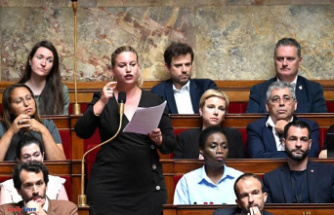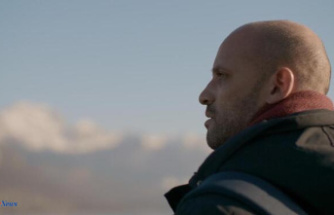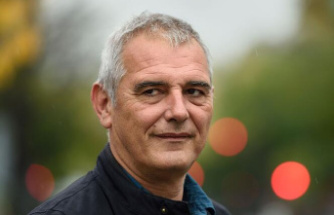The energy price flat rate is paid out, but the tank discount and 9-euro ticket are no longer available. Amazon is making its Prime offer more expensive, the Corona Infection Protection Act is expiring and then being reissued. But at least you can drink in a large group. This and other things await you in the new month.
Amazon makes Prime offer more expensive
Amazon Prime customers will be asked to pay from September. The subscription is more expensive for them. With a monthly payment, use will then cost 8.99 euros instead of the previous 7.99 euros. The annual subscription increases in price from 69 to 89.90 euros.
Coca-Cola is also getting more expensive
And the beverage company Coca-Cola is also increasing the prices for its entire product range as of September 1st. This not only affects the brown showerhead, but also Fanta and Sprite, for example. According to the sales manager, there is talk of an increase "in the higher single-digit percentage range".
Corona Infection Protection Act expires
The Corona Infection Protection Act expires on September 23. Applicable provisions are therefore no longer applicable for the time being. for now? Yes, because the Minister of Health and the Minister of Justice are already working on a new law. This should then last from October 2022 to April 7, 2023 - if the Bundestag agrees to it in the first week of September. During this period, specific protective measures should apply nationwide in certain areas: for example, the mask requirement in air and long-distance public transport or a nationwide mask and test certificate requirement for hospitals and care facilities.
The federal states should also be able to enact more extensive regulations to ensure the functionality of the health system or other critical infrastructure. The federal states can prescribe a mask requirement for local public transport and in publicly accessible indoor areas. This also applies to cultural and sporting events as well as in restaurants. There should be an exception here: Anyone who has proof of a test should be exempt from the mask requirement.
Countries can extend this exemption to people who can show they have just been vaccinated or have recovered. Conversely, this means that people who have been vaccinated three times are also considered unvaccinated if the last vaccination (three months) or illness (90 days) happened in the past.
Energy price flat rate is paid
All employees who are subject to income tax (tax brackets 1-5) are automatically paid a one-off energy price flat rate (EPP) of 300 euros. According to the Federal Ministry of Labor (BMAS), according to the government draft, "all marginally employed people this year will also benefit from the energy price flat rate - both the 450-euro mini-jobbers and short-term (marginal) employees - regardless of the exact type of taxation."
The energy price flat rate is paid out by the employer with the payslip. The grant is subject to income tax. Social security contributions, on the other hand, are not due. According to calculations by the taxpayers' association, a married employee with a child, tax class 4 and an annual salary of 45,000 euros would receive an energy price flat rate of 216.33 euros. With an annual salary of 15,000 euros, the same employee would receive 248.83 euros. If he is registered in tax class 3, he remains under the basic allowance, so he does not have to pay any taxes and is paid the full lump sum.
Less is left over for higher earners. According to the calculations of the association, a single person with tax class 1 and an annual salary of 72,000 euros will end up with a net subsidy of 181.80 euros. The top tax rate applies to him, and the flat rate also means that a solidarity surcharge applies again. A married employee with one child, tax class 4 and an annual salary of EUR 72,000 would receive a flat rate of EUR 184.34.
The self-employed receive an advance in the form of a one-off reduction in their income tax prepayment.
Energy saving measures come into effect
In the new month, the Energy Saving Ordinance will come into force. This stipulates, among other things, that retailers keep the doors of their shops closed (despite Corona), neon signs are prohibited from 10 p.m. in the evening until 4 p.m. the following day and monuments are not illuminated. Private swimming pools should not be heated with gas or electricity, and the room temperature in public buildings should also be limited to 19 degrees. Here, areas such as corridors and foyers should no longer be heated at all. Excluded from this are social facilities. But regulations in rental contracts about a certain minimum temperature are also temporarily suspended. The measures should apply for six months. A second regulation with medium-term effective measures is to follow on October 1st.
E-prescription coming
From the new month, pharmacies should be able to redeem electronic prescriptions for medicines throughout Germany. The federal government expects more security and less paperwork. However, not all medical practices in Germany issue the so-called e-prescriptions. Contract physicians who, for technical reasons, are not or not yet able to issue an e-prescription when the e-prescription is introduced must use the previously planned paper prescription (pink slip) as an alternative. The supply of pharmaceuticals to the patients is thus guaranteed in any case.
VAT on gas will be reduced
In view of the high gas prices, the federal government is relieving people in Germany of VAT. In the future, the tax on gas consumption will be 7 percent instead of the current 19 percent. This should apply until March 2024. From when? Probably not until October, since the gas surcharge is then to be raised. But it should be revised again. In any case, you can make a note of the reduction in VAT on gas.
9 euro ticket ends
In order to at least cushion the rise in energy costs, the 9-euro ticket was launched on June 1st. This discounted monthly ticket for 9 euros is valid for local public transport. So for buses, S-Bahn and U-Bahn as well as for trams. But regional trains can also be used with it, and then nationwide. But the discount campaign expires on August 31st. From September 1st, the regular tariffs, which are much higher, will apply everywhere. Successor models are currently at least being discussed. Not least because Federal Chancellor Olaf Scholz also described the 9-euro ticket as "one of the best ideas we've had so far".
Oktoberfest starts in September
It can be cupped again in a large round. Where? In Munich. On the Oktoberfest. When? From September 17th to October 3rd. And all without Corona requirements.
Nurses get more money
On the 1st of the new month, the law on the further development of health care provides for an increase in salaries in nursing. According to the law, only care providers who are either bound to a tariff or are based on a corresponding collective agreement in terms of the amount of remuneration may then bill the care insurance company for services. For nursing assistants, the nursing commission recommends an increase to 14.15 euros per hour, for qualified nursing assistants an increase to 15.25 euros per hour and for nursing staff to 18.25 euros per hour. For residents in nursing homes and their relatives, the personal contribution to accommodation and care will increase as a result, but above all because of the increased energy costs.
Start of school also in the last federal states
Bavaria was the last federal state to start the summer holidays on July 29th. And ends it last. On September 13th, all students and teachers have to go back to school. This also applies to Saarland, Rhineland-Palatinate and Hesse on the 2nd of the month. On the 11th, school sandwiches have to be spread again in Baden-Württemberg.
Tank discount also ends
From June 1st there was happy hour at the gas station. OK, not quite. But at least a tax break ensured that petrol and diesel became cheaper. The tax rate for petrol was reduced by almost 30 cents and for diesel by a good 14 cents. In addition, VAT was no longer payable on the portion of the energy tax that was no longer applicable. The total tax relief was 35.2 cents per liter of petrol and 16.7 cents per liter of diesel. But this discount campaign ends on August 31st.












